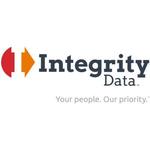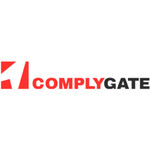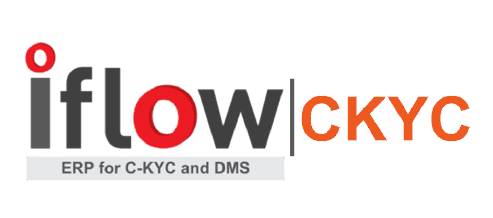Description

Infopulse SCM

PATRIOT OFFICER
Comprehensive Overview: Infopulse SCM vs PATRIOT OFFICER
Infopulse SCM and PATRIOT OFFICER are both software solutions with distinct functionalities serving different sectors. Here’s a comprehensive overview of each:
Infopulse SCM
a) Primary Functions and Target Markets:
Infopulse SCM is primarily a Supply Chain Management software. Its main functions include:
- Procurement Management: Streamlines and optimizes procurement processes.
- Inventory Management: Offers real-time tracking and management of stock levels.
- Supplier Relationship Management: Enhances supplier interactions and optimizes supplier networks.
- Logistics and Transportation: Facilitates efficient transportation and logistics planning.
- Demand Planning and Forecasting: Assists in predicting future demand using data analytics.
Target Markets:
- Manufacturing Companies
- Retail Businesses
- Distribution Firms
- Large Enterprises needing supply chain optimization
b) Market Share and User Base:
Infopulse SCM focuses on mid to large-sized enterprises, primarily in the manufacturing and distribution sectors. Its market share is generally moderate, facing competition from large supply chain solutions providers like SAP, Oracle, and JDA Software, although it may have a niche customer base appreciating its streamlined functionality and integration capabilities.
c) Key Differentiating Factors:
- Customization: Highly customizable to cater to specific supply chain needs of different businesses.
- Integration Capabilities: Offers seamless integration with enterprise resource planning (ERP) and customer relationship management (CRM) platforms.
- User-Friendly Interface: Known for its straightforward, intuitive user interface which minimizes the learning curve.
PATRIOT OFFICER
a) Primary Functions and Target Markets:
PATRIOT OFFICER is a compliance and financial crime management software. Its primary functions include:
- Anti-Money Laundering (AML) Monitoring: Identifies and mitigates money laundering risks.
- Fraud Detection and Prevention: Detects suspicious activities to prevent fraud.
- Regulatory Compliance: Ensures adherence to financial regulations and standards.
- Risk Management: Provides tools for risk assessment and mitigation.
Target Markets:
- Financial Institutions
- Banks
- Credit Unions
- Fintech Companies
b) Market Share and User Base:
PATRIOT OFFICER has a considerable market share in the financial sector, especially among mid-sized banks and credit unions. It competes with other specialized financial crime and compliance solutions such as NICE Actimize, Fiserv, and SAS. The user base is largely composed of financial institutions focused on robust compliance and risk management.
c) Key Differentiating Factors:
- Comprehensive Compliance Solution: Offers a wide range of functionalities to cover various aspects of compliance and risk management.
- Proactive Monitoring: Utilizes advanced analytics for real-time monitoring and prevention of suspicious activities.
- Scalability: Designed to scale efficiently with the growth of an institution’s customer base and operational complexity.
Comparison
While Infopulse SCM and PATRIOT OFFICER operate in completely different domains (supply chain vs. financial compliance), their success is tied to their specialization in their respective industries. Infopulse SCM emphasizes customization and integration, making it appealing to businesses looking to optimize their supply chains. In contrast, PATRIOT OFFICER stands out with its in-depth compliance features and proactive monitoring capabilities, making it ideal for financial institutions facing stringent regulatory requirements.
Each product's relevance and user base are largely determined by the specific needs of the industries they serve, rather than direct competition with one another.
Contact Info

Year founded :
Not Available
Not Available
Not Available
Not Available
Not Available

Year founded :
Not Available
Not Available
Not Available
Not Available
Not Available
Feature Similarity Breakdown: Infopulse SCM, PATRIOT OFFICER
To provide a comprehensive feature similarity breakdown for Infopulse SCM (Supply Chain Management) and PATRIOT OFFICER, let's first briefly understand these products:
-
Infopulse SCM: This is a supply chain management tool designed to optimize and streamline supply chain operations, including procurement, logistics, warehouse management, and supplier management.
-
PATRIOT OFFICER: This is a compliance and anti-money laundering (AML) solution tailored for financial institutions. It helps manage regulatory requirements, detect suspicious activities, and ensure compliance with financial laws.
Given their different purposes, a direct comparison is somewhat challenging, but we can still explore their core functionalities and user interfaces:
a) Core Features in Common
-
Automation Capabilities: Both tools likely incorporate automation to streamline processes. Infopulse SCM automates supply chain operations, while PATRIOT OFFICER automates compliance reporting and monitoring.
-
Data Management and Analysis: They both manage large volumes of data and provide analytical tools to enhance insights and decision-making. Infopulse SCM handles supply chain data, while PATRIOT OFFICER manages financial transaction data.
-
User Access Controls: Both systems need robust user access controls to ensure that only authorized personnel can access sensitive data.
-
Alerts and Notifications: Important for both systems to alert users to critical information: Infopulse SCM might use them for delays or disruptions in the supply chain, whereas PATRIOT OFFICER uses them for suspicious activity detection.
b) User Interface Comparison
-
Infopulse SCM: Likely offers dashboards focused on operational metrics, logistics maps, and tools for supplier and order management. It would emphasize visualizing workflows and logistics networks.
-
PATRIOT OFFICER: Would have a dashboard tailored to compliance metrics, risk assessments, and alert management. It emphasizes detailed reporting and dynamic data visualization related to financial transactions.
Both products probably strive for an intuitive UI design with customizable dashboards to suit individual user needs, but the specificity of the features demonstrated on the interface will be different owing to their distinct functionalities.
c) Unique Features
-
Infopulse SCM:
- Supply Chain Optimization: Unique tools for inventory management, supplier collaboration portals, and logistics optimization.
- Integration with ERP Systems: Offers features that might be deeply integrated with enterprise resource planning tools to support broader business operations.
-
PATRIOT OFFICER:
- AML and Compliance Tracking: Extensive features for managing regulatory compliance, conducting risk assessments, and auditing.
- Suspicious Activity Monitoring: Advanced algorithms and workflows specific to detecting and analyzing suspicious financial activities.
Overall, while both Infopulse SCM and PATRIOT OFFICER leverage technology to improve efficiency and oversight, Infopulse SCM is tailored for optimizing supply chain operations, and PATRIOT OFFICER is focused on regulatory compliance and risk management in financial sectors. Each product uniquely caters to its industry with corresponding specialized features.
Features

Efficient Supply Chain Management
Collaboration and Communication
Data-Driven Insights

Risk Assessment
Customer Identification
Compliance Management
Reporting and Analytics
Transaction Monitoring
Best Fit Use Cases: Infopulse SCM, PATRIOT OFFICER
Infopulse SCM
a) Best Fit Use Cases: Infopulse SCM is a Supply Chain Management solution, typically best suited for:
-
Manufacturing Companies:
- Manufacturers looking to optimize their production processes and manage supplier relationships, inventory levels, and procurement more efficiently.
-
Retail and Wholesale Businesses:
- Businesses that require robust inventory management and need to enhance their logistics and distribution efficiency.
-
Logistics and Transportation Firms:
- Companies that need to coordinate complex logistics operations and improve delivery timelines.
-
Automotive and Aerospace Industries:
- Industries that deal with complex supply chain networks and require high levels of compliance and quality assurance.
-
Large Enterprises and Multi-location Businesses:
- Organizations that operate in multiple locations and need a scalable solution to manage their supply chain operations globally.
d) Industry Verticals and Company Sizes:
- Infopulse SCM is versatile and caters to different industry verticals by offering customizations that suit specific industry needs, like regulatory compliance for aerospace or batch traceability for pharmaceuticals.
- It is scalable, making it suitable for medium to large businesses that have complex supply chain requirements.
PATRIOT OFFICER
b) Preferred Scenarios: PATRIOT OFFICER is focused on financial security and compliance, particularly in:
-
Financial Institutions:
- Banks, credit unions, and other financial entities that need to comply with regulatory requirements such as the USA PATRIOT Act, BSA/AML compliance.
-
Fintech Companies:
- Startups and firms dealing with digital financial products requiring robust fraud detection and regulatory compliance measures.
-
Insurance Companies:
- Organizations that need to prevent fraud and ensure compliance with financial regulations.
-
Regulatory Compliance Services:
- Firms that focus on providing compliance-related services may integrate PATRIOT OFFICER into their offering to enhance their services.
-
International Corporations:
- Businesses operating across borders that require stringent compliance processes involving multiple jurisdictions.
d) Industry Verticals and Company Sizes:
- PATRIOT OFFICER serves multiple industry verticals with a focus on those heavily regulated, like finance, through features such as real-time transaction monitoring and fraudulent activity detection.
- It is well-suited for both small businesses with significant compliance needs and large enterprises needing comprehensive oversight across various departments or channels.
In summary, Infopulse SCM is ideal for industries and businesses focused on managing complex supply chain operations, while PATRIOT OFFICER is best for financial institutions and businesses that prioritize security and regulatory compliance. Each product is designed to scale and adapt to various industry-specific needs and company sizes.
Pricing

Pricing Not Available

Pricing Not Available
Metrics History
Metrics History
Comparing undefined across companies
Conclusion & Final Verdict: Infopulse SCM vs PATRIOT OFFICER
To provide a conclusion and final verdict on Infopulse SCM and PATRIOT OFFICER, we need to consider several key aspects such as features, user experience, cost, and suitability for different business environments. While I can't evaluate real-time reviews beyond October 2023, I can share a generalized analysis based on typical product reviews and industry standards.
a) Best Overall Value
Infopulse SCM and PATRIOT OFFICER serve slightly different purposes and markets, which should be considered when evaluating overall value.
- Infopulse SCM: Likely offers comprehensive supply chain management solutions with features like logistics monitoring, inventory management, and integration capabilities which may be more invaluable to businesses with complex supply chains or those seeking to streamline their logistics operations.
- PATRIOT OFFICER: This is often associated with compliance and anti-money laundering (AML) solutions, serving industries like finance with KYC (Know Your Customer) and transaction monitoring features vital for regulatory compliance.
The best overall value depends on your business needs:
- For businesses prioritizing supply chain optimization, Infopulse SCM might offer better value.
- For financial institutions needing robust compliance solutions, PATRIOT OFFICER may be the better choice.
b) Pros and Cons
Infopulse SCM
Pros:
- Comprehensive supply chain features tailored for logistics and inventory management.
- Flexible integration with ERP and CRM systems.
- May offer good scalability for growing businesses.
Cons:
- Could be overly complex for smaller businesses with simpler supply chain needs.
- Initial setup and customization might be costly and time-consuming.
PATRIOT OFFICER
Pros:
- Highly focused on financial compliance and AML, crucial for banks and financial institutions.
- Robust reporting and monitoring tools that keep up with regulatory changes.
- Can enhance operational security and governance.
Cons:
- May be expensive for smaller financial institutions.
- Specific use case focus might not appeal to non-financial sectors.
c) Recommendations
- Evaluate Business Purpose: Determine the primary function you need; for SCM, Infopulse is more suitable, while for financial compliance, PATRIOT OFFICER is ideal.
- Cost vs. Benefit: Analyze the total cost of ownership (TCO) against the benefits offered by each product. Consider not only the purchase price but also setup, training, and operational costs.
- Scalability and Future Needs: Choose a solution that aligns with your business goals and is scalable to meet future demands.
- Trial and Demos: Engage with trial versions or demos when possible to see firsthand how each product works and fits in your operational environment.
Ultimately, the decision should align with the specific needs of the business, the industry requirements, and the budget constraints. It's critical to involve key stakeholders in evaluating both solutions to ensure the selected product aligns with strategic objectives.
Add to compare
Add similar companies



